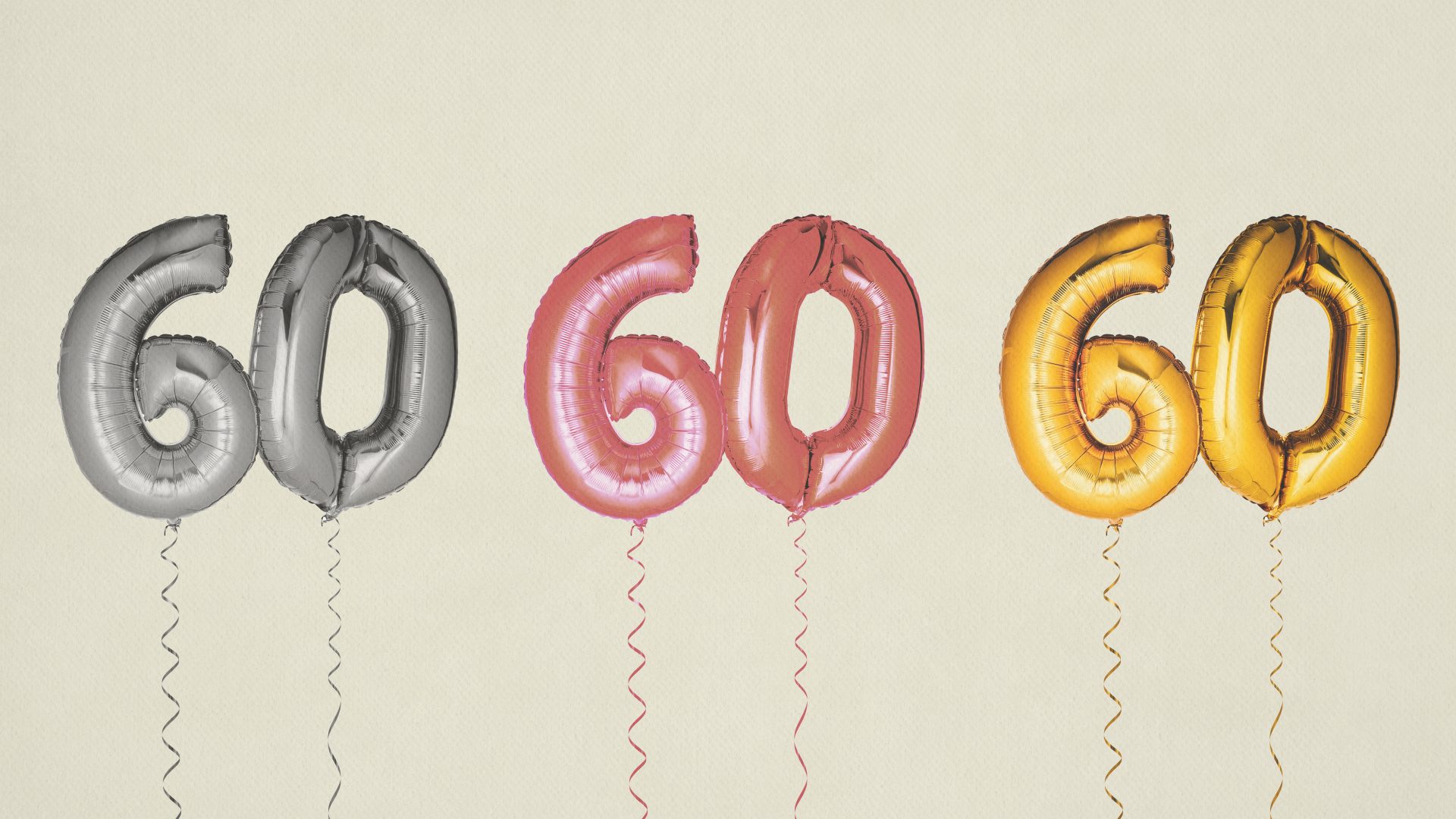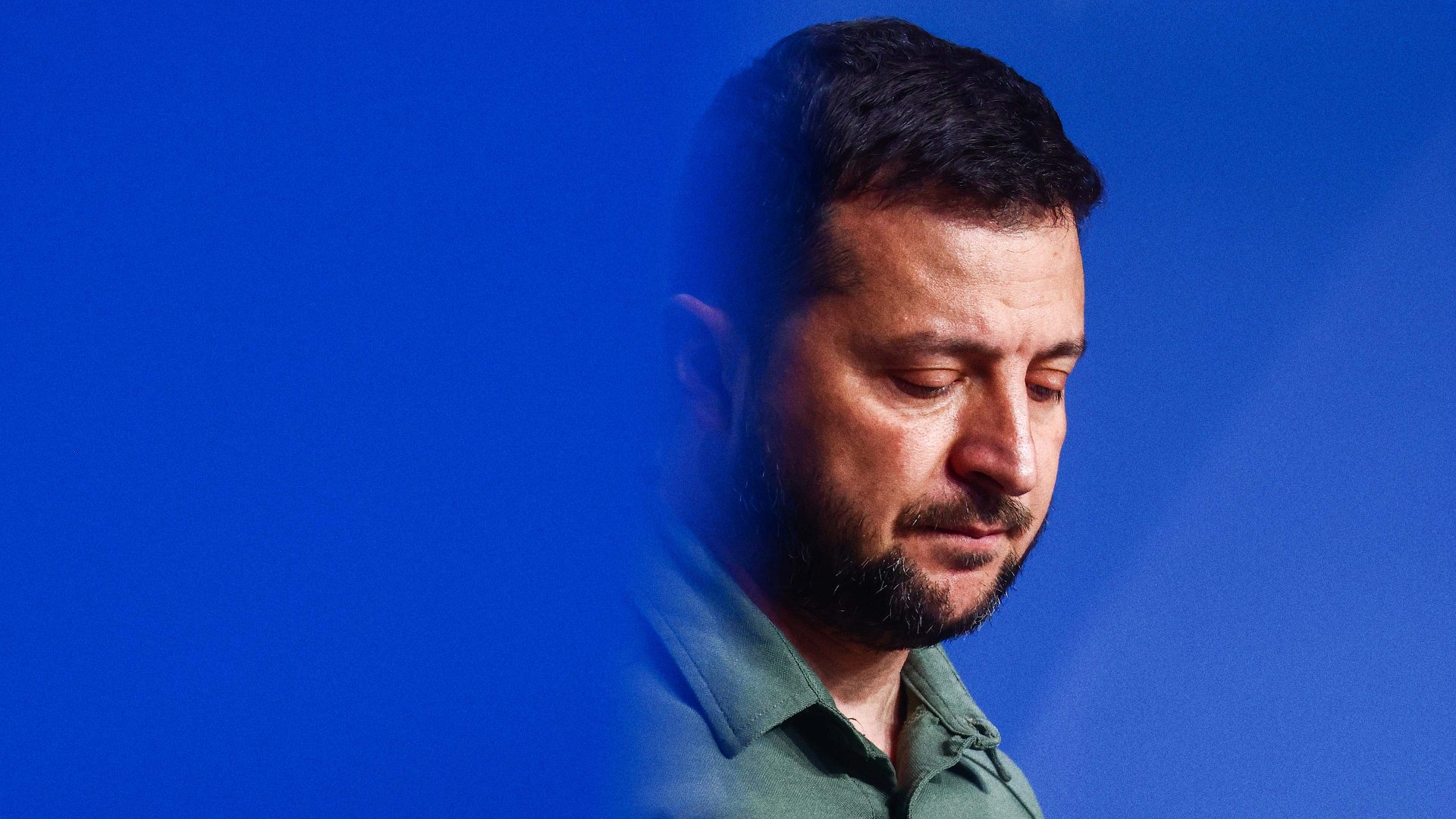If you’ve been anywhere near Germany this year, you will have noticed a flurry of round-number birthday parties – with balloons in the shape of ‘60’, and usually a very large crowd of friends.
The reason is that 2024 marked a milestone for Germany’s biggest demographic cohort: the peak of our postwar population explosion was in 1964, with 1,357,304 baby Krauts, to be exact. That’s about twice as many as today’s birth rate.
The German baby boom, between 1955 and 1969, started a few years after the ones in the UK and US – which gave us time to adopt your terminology. We call them baby boomers here, too. And now, as happened with you, the first word has been dropped by younger people and replaced by a rather patronising “OK”, as in “OK boomer”.
Every month back then, the equivalent of a small town was born. The cohort could fill all 18 German Bundesliga stadiums to the last seat, and when they entered school, they were regularly sent from one classroom to another to find missing chairs for a few of their 45 classmates.
For them, uniqueness is a foreign concept: there could be four Thomases, Andreases, Michaels, Sabines and Susannes in the same school year – the most popular names in 1964.
One of them, my colleague Thomas Tuma, recently wrote about his fate: “We were always the most and often too many.” In Kindergarten, school, university – “‘Work hard,’ we were told. And teachers liked to add: ‘At least you’ll become decent cab drivers then.’” Because even with great marks there was never a shortage of people the same age but with better results.
Today, we lament Fachkräftemangel (the shortage of skilled labourers), but back then there was concern about the Akademikerschwemme (flood of academics) – most of whom moved on from their destined career in a cab to do remarkable things.
Jürgen Klinsmann is Gen64, as is singer HP Baxxter from the band Scooter, the Oscar-winning director Caroline Link, actor Jan Josef Liefers, the comedian HP Kerkeling and my first boss at the tabloid Bild, Kai Diekmann. And while they may be the first proper postwar generation, they still had to deal with cold war arms races, HIV, oil shocks, Baader-Meinhof terror and Chernobyl.
Leaving resilience and achievements aside, however, their big bump in the birth pyramid is inexorably creeping upwards. Towards retirement. Which is a serious reason for concern.
Over the next 12 years, the German labour market will lose roughly 19.5 million baby boomers. That’s about a third of the workforce. In contrast, according to the Institut der Deutschen Wirtschaft (IW), only 12.5 million younger employees will enter the job market by 2036.
Despite an expected population growth of around 2.3% to 85 million people by 2040, the IW warns that the ageing of society in Germany will be our biggest challenge. Because, frankly, the proportion of a well-off but costly non-working population is increasing by the day.
The strain on the social system will grow accordingly – 30% of the federal budget is already allocated to pensions, because the retirement insurance scheme that Germans pay into through employment isn’t close to covering demand. Nor are insurance schemes that are supposed to cover health and long-term care.
For German society, this threat is more relevant than Vladimir Putin’s warmongering or potential US tariffs, but of course it won’t figure in the forthcoming election campaign. None of the political players dare to tell the truth to the public: that Germany has one of the richest welfare systems in the world – albeit one that’s increasingly unaffordable, with fewer and fewer people paying into it.
The boomers did pay, they were instrumental in shaping our welfare state. They worked hard, put their share into the pension pot, and supported their own ageing parents.
But now, as this largest generation ever exits the stage, the system is showing cracks. Who will pay for the boomers? Germany’s birth rate is low, immigration can’t fill the gap, and the robots aren’t quite ready to take over.
What’s more, boomers are now being side-eyed by Gen Z, who accuse them of having danced on a dying planet.
For Germany, however, the pressing question isn’t who is to blame, but how to adapt. The boomers, despite their looming retirement, still have much to offer in terms of experience, skills and wisdom. The challenge will be finding ways to tap into that while simultaneously preparing for a future where the demographic scales are permanently tipped.
But for now: happy birthday, boomers!




